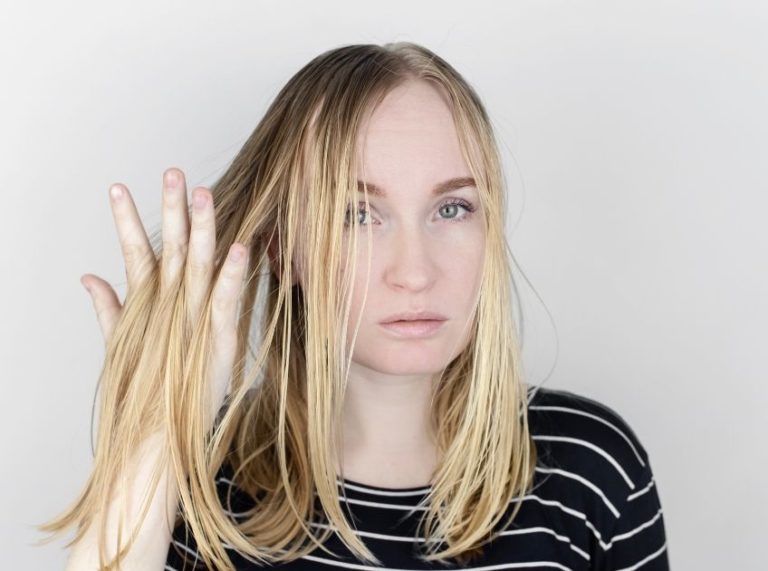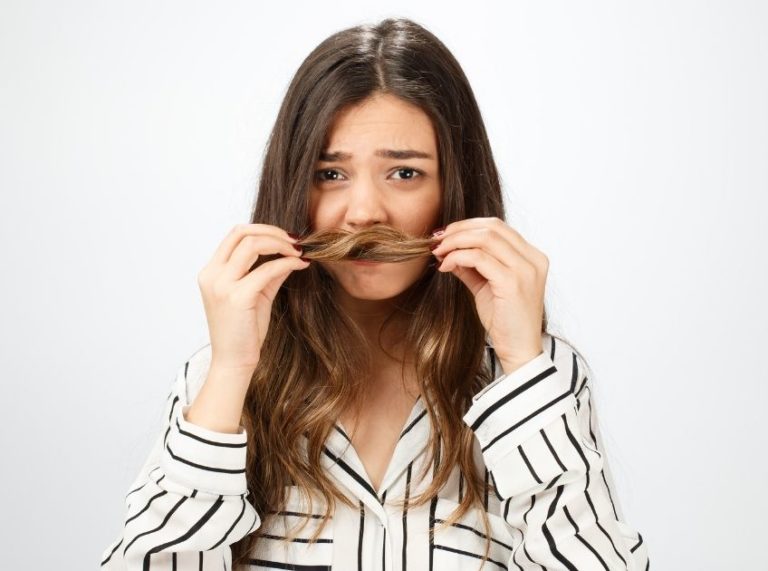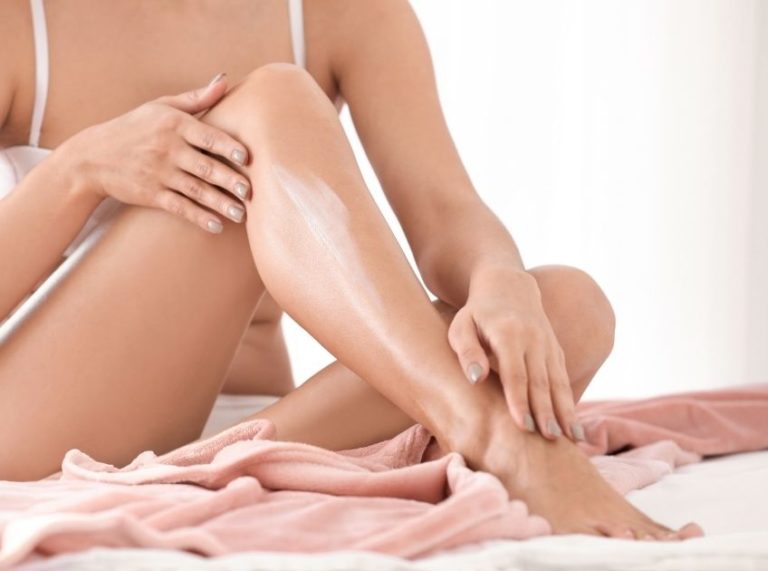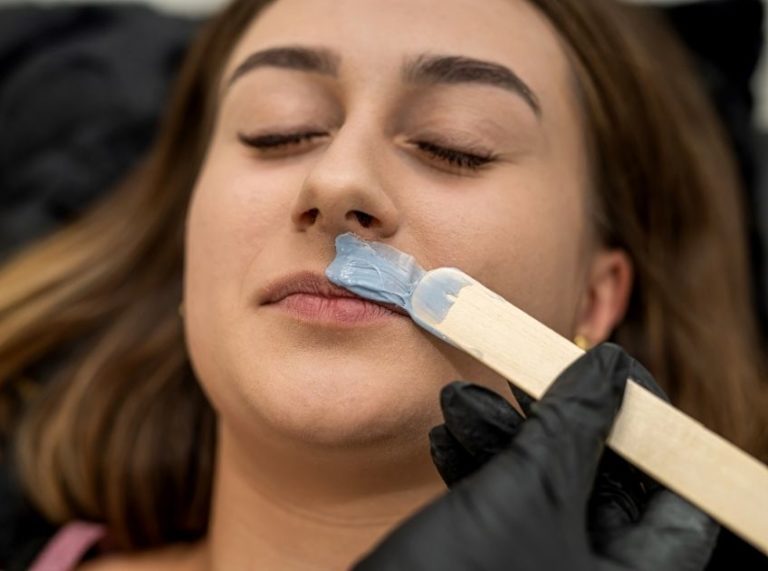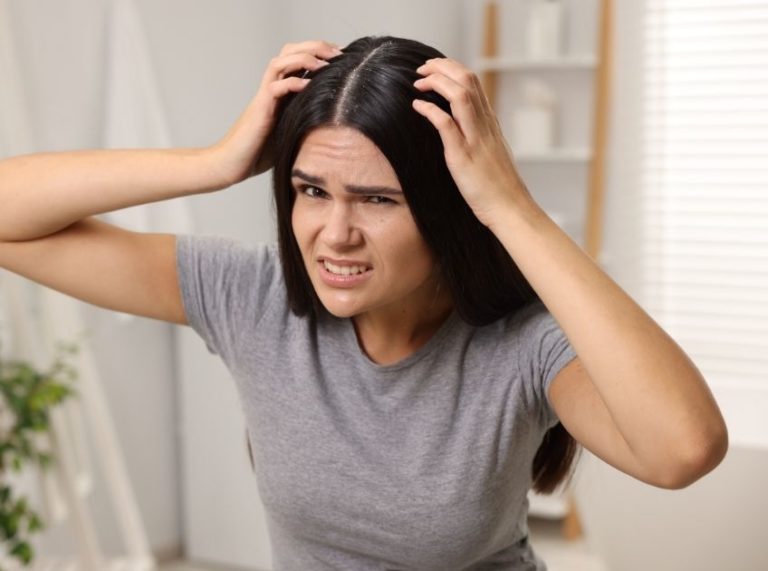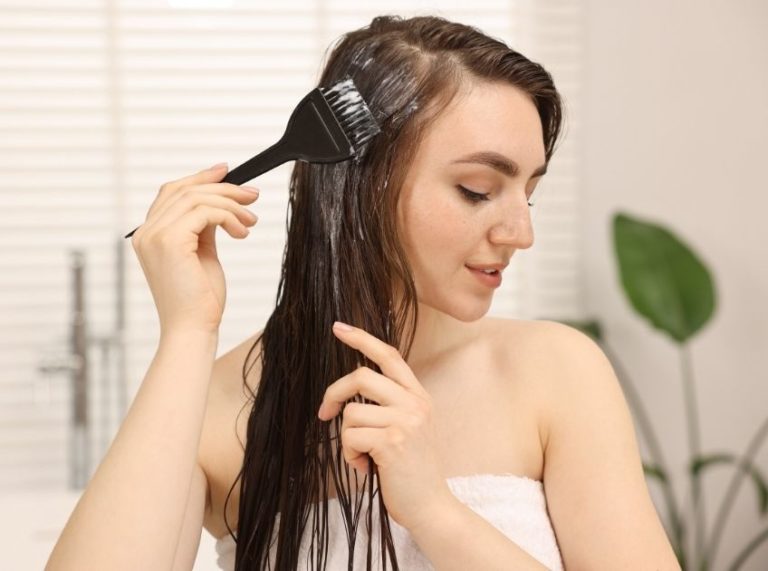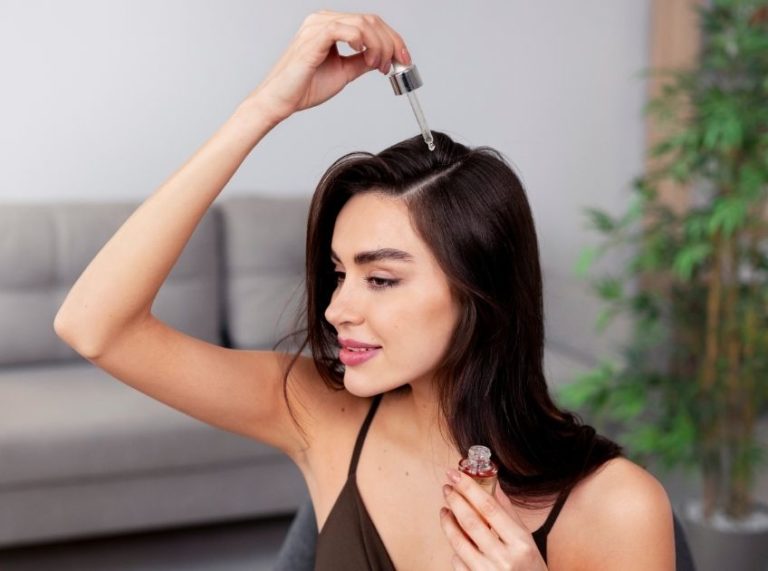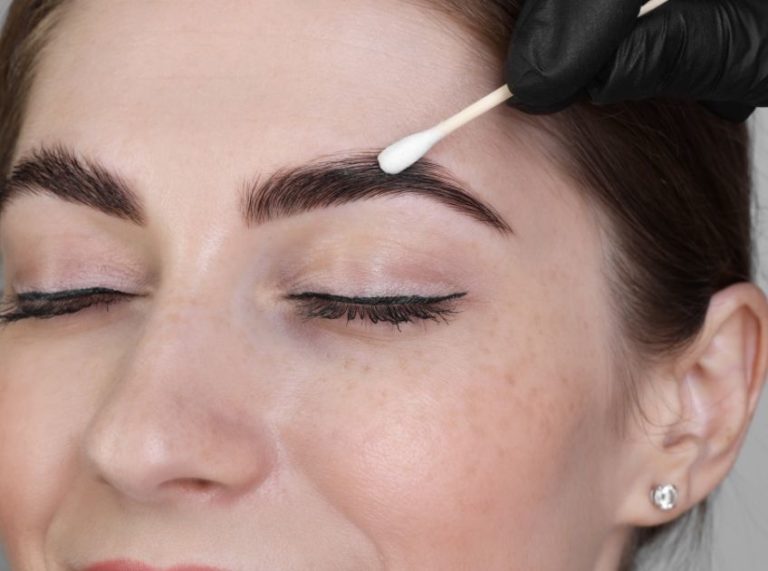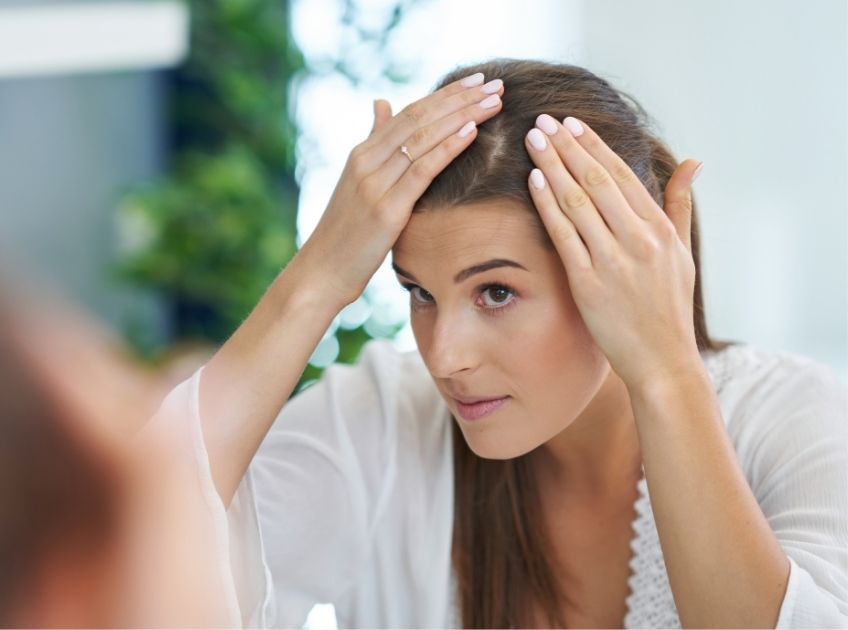
Important: This article is for informational purposes only. Please read our full disclaimer for more details.
A persistent scalp smell can be frustrating and embarrassing, but it’s usually a sign of imbalance—either in oil levels, the scalp microbiome, or daily hygiene practices. Your scalp naturally produces oils and houses microorganisms, but when these elements shift even slightly, odor can develop and linger.
A healthy scalp should not have a recurring foul, sour, sweaty, or musty odor. If it does, your scalp is communicating that something is off. Understanding these signals early can help prevent infections, dandruff, or chronic irritation.
What causes a smelly scalp? The Hidden Triggers
A smelly scalp isn’t caused by one factor—it’s usually a combination of biological, environmental, and lifestyle influences. Below are the most common causes backed by dermatological understanding.
1. Overactive Oil Glands:
- Your scalp contains more sebaceous (oil) glands than any other part of your body except your face. When these glands produce excess sebum, it creates the perfect environment for odor-causing microbes.
- Research shows that Malassezia, a yeast naturally found on the scalp, thrives in oily environments and releases byproducts that can create a sour or musty smell (1).
2. Microbial Overgrowth:
- The scalp has its own microbiome. When this balance is disrupted, microbes multiply faster and release odor-causing compounds.
- Studies demonstrate that an imbalance in bacteria, such as Staphylococcus or yeasts like Malassezia globosa, contributes to flakiness, irritation, and odor (2).
3. Sweat and Environmental Buildup:
Sweat itself doesn’t smell—but when it mixes with dead skin, oils, and microbes, odor develops. Common triggers include:
- Humid weather
- Wearing helmets or hats
- Intense workouts
- Not washing hair after sweating
4. Product Buildup (Scalp Congestion):
- Heavy conditioners, gels, serums, and dry shampoos can accumulate on the scalp.
- Studies indicate that clogged hair follicles disrupt healthy airflow and microbial balance, leading to odor (3).
5. Dandruff and Seborrheic Dermatitis:
Both are associated with Malassezia overgrowth. Symptoms include:
- Greasy flakes
- Itching
- A characteristic musty or sour smell
- Dermatology literature confirms that inflammation caused by this yeast triggers scalp odor in many individuals.
6. Scalp Psoriasis:
- This autoimmune condition speeds up skin cell turnover.
- Build-up of thick scales combined with inflammation can trap microbes and produce odor.
7. Hormone Fluctuations:
- Hormones regulate sebum production. During PMS, puberty, pregnancy, or stress, sebaceous glands often produce more oil, increasing the risk of odor.
8. Poor Washing Habits:
- Underwashing allows sweat and oils to accumulate; overwashing strips natural oils and triggers rebound oil production—both can contribute to odor.
Does “Smelly Scalp Syndrome” Really Exist?
The term “Smelly Scalp Syndrome” is not an official medical diagnosis—but it is used informally to describe persistent scalp odor unexplained by hygiene.
Dermatologists believe this condition is usually tied to:
- Microbial imbalance
- Excess oil production
- Seborrheic dermatitis
- Underlying infection
Scientific evidence supports the idea that a disrupted scalp microbiome can become overrun by odor-producing organisms, which leads to chronic smell even if the scalp appears normal (3).
Natural At-Home Remedies That Can Help
For many people, scalp odor can be significantly reduced with consistent natural treatments. These remedies address microbial imbalance, product buildup, and excess oil.
1. Apple Cider Vinegar Rinse
Benefits:
- Restores scalp pH
- Reduces yeast and bacteria
- Removes odor-causing residue
How to use: Mix 1 part ACV with 3 parts water and use after shampooing.
2. Tea Tree Oil
Benefits:
- Antifungal and antibacterial
- Helps control scalp infections
How to use: Add 5–6 drops to your shampoo or dilute in a carrier oil before applying.
3. Aloe Vera Gel
Benefits:
- Calms inflammation
- Reduces microbes
How to use: Apply pure aloe to the scalp 20 minutes before washing.
4. Lemon Juice Rinse
Benefits:
- Natural antibacterial properties
- Helps neutralize odor
How to use: Dilute lemon juice with water before applying to avoid irritation.
5. Neem Water
Benefits:
- Powerful antifungal effect
- Helps treat dandruff and odor
How to use: Boil neem leaves in water, cool, and use as a final rinse.
6. Bentonite Clay Mask
Benefits:
- Absorbs oil and impurities
- Detoxifies the scalp
How to use: Mix clay with water or ACV and apply for 10–15 minutes.
7. Improve Scalp Hygiene
- Wash according to your scalp type
- Rinse products thoroughly
- Avoid applying heavy products to the roots
- Dry hair fully before tying it up
Medical Treatments That Offer Lasting Relief
If odor persists despite natural remedies, it may indicate a deeper imbalance or infection requiring targeted treatment.
1. Antifungal Shampoos:
Useful for treating yeast overgrowth and seborrheic dermatitis. Look for:
- Ketoconazole
- Selenium sulfide
- Zinc pyrithione
2. Topical antibiotics: Prescribed for bacterial infections or folliculitis.
3. Salicylic acid shampoos:
- Exfoliate the scalp
- Reduce buildup and inflammation
4. Corticosteroid lotions: Used for severe itching or inflammation due to dermatitis.
5. Oral antifungals or antibiotics: Required for persistent or widespread infections.
6. Professional scalp exfoliation: Dermatologists or trichologists can remove deep-seated buildup more effectively than at-home methods.
When it’s Time to Consult a Professional
If home care isn’t improving your scalp odor, professional help is recommended. Seek medical care if:
- The odor persists for weeks
- You notice redness, scaling, or swelling
- You develop painful bumps or pus
- Hair begins to thin or shed
- Your scalp becomes oily within hours of washing
- Symptoms worsen despite treatment
- Persistent scalp odor can indicate an infection or dermatitis that needs medical intervention.
What Research Tells us about Scalp Odor and Scalp Microbiome
Dermatological studies highlight the importance of maintaining a balanced scalp microbiome. Key findings include:
- Overgrowth of Malassezia is strongly associated with dandruff, itching, and odor.
- Sebum quantity and composition directly affect microbial activity.
- Stress and hormonal fluctuations can increase scalp oiliness and odor.
- Antimicrobial ingredients like ketoconazole, tea tree oil, and zinc pyrithione effectively reduce scalp microbes.
- pH imbalance can trigger yeast overgrowth and odor.
- Understanding these mechanisms helps guide both natural and medical treatment strategies.
Frequently Asked Questions (FAQ’S)
1. Why does my scalp smell even after washing?
A. A lingering smell after washing often signals microbial imbalance, fungal overgrowth, or a bacterial infection. It may also result from overactive sebaceous glands or incorrect rinsing of products.
2. Can stress cause a smelly scalp?
A. Yes. Stress increases cortisol, which boosts oil production and disrupts the scalp microbiome, increasing the chance of odor, dandruff, and sensitivity.
3. How often should I wash a smelly scalp?
A. Most people benefit from washing every 1–2 days until the odor subsides. However, over-washing can worsen oil production, so balance is essential. Your dermatologist can guide frequency based on your scalp type.
A smelly scalp isn’t something you have to live with. Whether caused by oil imbalance, yeast overgrowth, product buildup, or infection, the problem is treatable with the right approach. Start with natural remedies and scalp-friendly habits, but don’t hesitate to seek medical treatments if symptoms persist.
Your scalp plays a major role in overall hair health—when you care for it properly, odor fades, confidence improves, and your hair thrives.
